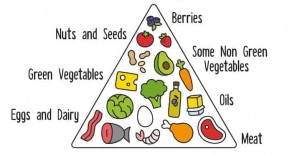
In today’s world, sustainability has become a crucial consideration in all our lives, and the construction industry is no exception. Sustainable construction, or green or eco-friendly, focuses on minimizing environmental impact, conserving resources, and creating healthier and more efficient buildings. Let’s explore how sustainable construction practices shape the industry’s future. View it now to get info about construction consultant companies in UAE.
Energy efficiency:
Energy efficiency is a key aspect of sustainable construction. Buildings are responsible for significant global energy consumption and greenhouse gas emissions. Sustainable construction practices prioritize energy-efficient design and technologies, such as proper insulation, efficient HVAC systems, and energy-saving lighting. These measures reduce energy consumption, lower carbon footprints, and decrease operating costs for building owners.
Use of sustainable materials:
Sustainable construction promotes the use of environmentally friendly materials. Due to their energy-intensive production processes, traditional building materials like concrete and steel have a high carbon footprint. Sustainable alternatives include recycled materials, reclaimed wood and low-impact construction products. Additionally, using locally sourced materials reduces transportation-related emissions and supports local economies.
Water conservation:
Water scarcity is a growing global concern. Sustainable construction addresses this issue by incorporating water conservation measures. Low-flow plumbing fixtures, rainwater harvesting systems, and efficient irrigation methods help minimize water usage. Greywater systems, which recycle water from sinks and showers, further reduce the strain on water resources. These strategies conserve water and reduce water bills for building owners.
Waste reduction and recycling:
Construction generates a significant amount of waste. Sustainable construction practices aim to reduce waste by incorporating waste management strategies. This includes recycling and reusing construction materials, properly managing construction debris, and implementing waste reduction plans. By diverting waste from landfills, sustainable construction minimizes environmental pollution and conserves natural resources.
Green building certifications:
Green building certifications, such as LEED (Leadership in Energy and Environmental Design), provide a framework for evaluating and recognizing sustainable construction practices. These certifications consider energy efficiency, water conservation, indoor air quality, and sustainable materials. Buildings that meet the criteria of these certifications demonstrate a commitment to sustainability and provide tangible benefits to occupants and the environment.
Sustainable construction practices transform how buildings are designed, built, and operated. Energy efficiency, the use of sustainable materials, water conservation, waste reduction, green building certifications, biophilic design, and the development of net-zero energy buildings are all contributing to a greener future.







